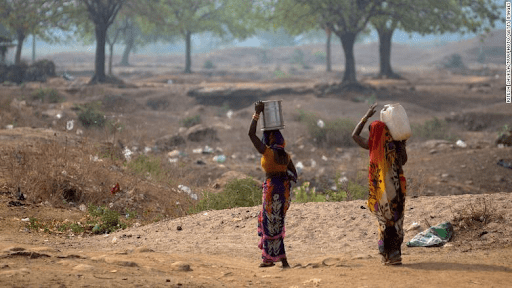Hundreds of many people in India face a significant threat to their livelihoods and food security thanks to overexploitation of important water supplies, consistent with the authors of a new study.
India is one among the world’s biggest crop producers and quite half its 1.3 billion people believe agriculture for his or her livelihoods. But the groundwater that creates up 40% of the country’s water system has been steadily depleting for years.
A study has been conducted and found that overuse of groundwater could cause winter harvests in some regions. It could also fall up to two thirds by 2025.
A team of international researchers analyzed and also used satellite imagery to measure the impact on winter harvest (account for 44% of the country’s annual crop). Winter agriculture relies heavily on groundwater irrigation as against the odds.
Indian food production made a hike since the 1960s. This is because of farmers began widely using tube wells, which draw water from deep underground. It also made the farming easy and also allowed them to continue farming even during dry seasons.
The researchers found that if farmers in over-exploited regions where underground water is depleted. Also irrigation water isn’t replaced by other sources, winter harvests could decrease by 20% nationwide and by 68% in the most severely affected areas.
This is a worst-case scenario, and therefore the damage might be mitigated if authorities take action and adopt alternative irrigation options, the study said. The government has already been widely pushing the adoption of canal irrigation, which diverts surface water from lakes and rivers, and will help offset a number of the losses.
But it’s far from a perfect solution — even if all regions currently using depleted groundwater switched to canal irrigation, winter harvests could still decline by 7% nationwide and by 24% within the worst hit locations, consistent with the study.
And canal irrigation comes at its own cost — it might mean farmers are more susceptible to weather changes, since lakes and rivers depend upon rainfall. Groundwater is additionally a more equitable thanks to distribute water across villages, since wells are decentralized as against large-scale canal projects.
The critical importance of groundwater for Indian agriculture and rural livelihoods, and that we were ready to show that simply providing canal irrigation as a substitute irrigation source will likely not be enough to take care of current production levels within the face of groundwater depletion.
Instead, the govt must adopt a good range of strategies — as an example , switching from winter rice to less water-intensive cereals, the utilization of sprinklers and drip irrigation to conserve water, and policies to extend the efficiency of irrigation canals, according to the study.
Source: CNN




